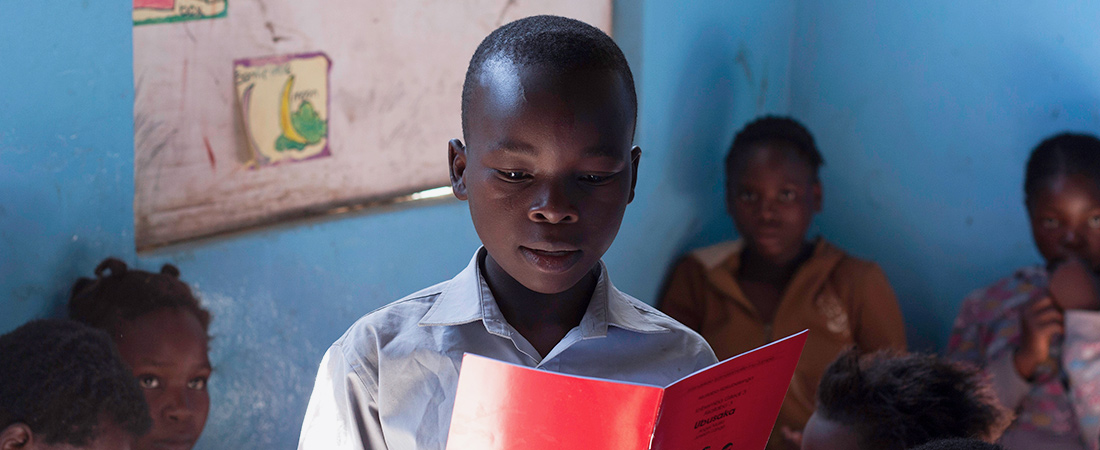
Literacy and mathematical programs deliver the promise of education to millions of children around the world.
We create and test learning experiences that lead to deep understanding and an ability to act thoughtfully upon the world. Whether in settings that are rich or poor in resources, we are committed to building sound foundations in literacy, science, and mathematics.
Through engaging classroom curricula, media instruction, digital tools, and teacher training, we equip children and young adults with the fundamentals they need to be successful—in school and in life.
Related Content
A Second Chance at School in Mali
In Mali, accelerated education is helping thousands of children get back to school.
Is Social Media Harmful to Students with Disabilities?
A new report on social media finds some benefits, but higher cyberbullying rates.
3 Ways to Stop the Summer Slide
Want to help kids keep learning this summer? Here are some tips for parents and caregivers.
How Schools Can Support Students Affected by Opioids
The trauma children experience as a result of opioid misuse at home can affect how they do in school—but schools can help.
3 Ways Schools Can Support Children Affected by the Opioid Crisis
Schools are uniquely positioned to address the needs of children exposed to trauma, says Shai Fuxman.
Accelerating Education in Liberia
An estimated 300,000 Liberian children do not attend school. What’s being done to provide more access to education?
Projects
Resources
Here are a few of our resources on behavioral, physical, and mental health. To see more, visit our Resources section.
This case study is one of the Sustainable Finance Initiative’s seven rapid country case studies studying the state of school meals programs.
This study examines the extent to which Connecticut's Teacher Education and Mentoring (TEAM) Program was implemented as planned and whether fidelity of implementation helped to retain participating
The Work-Based Learning Data Collection Toolkit is designed to guide educators and school administrators in developing or improving their systems for collecting work-based learning data.
For two years, the Innovative Technology Experiences for Students and Teachers (ITEST) Learning Resource Center at EDC and the ITEST community engaged in a collaborative exploration of evidence-bas
This is an invited memo offering an investment case for school health and nutrition programs that was prepared for the Spring 2022 Meeting of the Global Education Forum (GEF).
This questionnaire was developed by EDC, with funding from the Nellie Mae Education Foundation, for schools and districts to support student-centered learning (SCL) approaches.
EDC’s Chemistry: Concepts and Practices, a yearlong high school course curriculum, fosters grade 9–12 students’ scientific and data literacy; builds their reading, writing, and oral commun
This report outlines the need to work together with new and unlikely allies, other than education actors alone, to reimagine how our interconnected systems—health, education, economic development, and the protection of our planet—can work toward Sustainable Development Goal 4: Quality Education and beyond.
The Package for Improving Education Quality (PIEQ) project aims to improve French and math learning in the Democratic Republic of the Congo. Through collaboration with DRC's National Ministry of Education (MNE), PIEQ builds the capacity of teachers, schools, and communities in three Congolese provinces to increase student learning by improving teaching and the school environment.
Instructional strategies that facilitate access to language and participation in mathematical discussions are essential to promote equitable learning opportunities for multilingual learners in the
